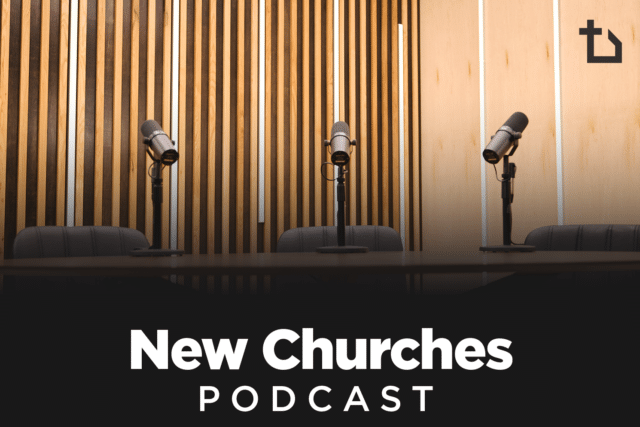New Churches Podcast | Season 1 | Episode 715
5 Advantages of Staying Small

Episode 715
Even if we say growth is really not a congregation’s goal, there’s a subtle pressure for our churches to always be numerically larger. Host Clint Clifton talks with Jess Thompson and Todd Adkins about five advantages to staying relatively small.
In This Episode, You’ll Discover:
- The advantage of agility in mission
- Why relational depth is so important
- What forced ingenuity means in a smaller church context
- Why smaller churches can handle failure better
- Why volunteer dependency is such a good thing
Helpful Resources:
- Gen. Stanley McChrystal’s book: Team of Teams
- John Kotter books:
Leading Change
Accelerate: Building Strategic Agility for a Faster-Moving World - Lawrence Miller’s book: Barbarians to Bureaucrats
- Interested in learning more? Check out our Church Planting Primer
- Are you ready to enroll in our Church Planting Masterclass?
Please subscribe to the podcast and leave a rating and review on iTunes.
Sharable Quotes (#NewChurches):
We obviously we want to continue to reach people with the gospel. However, there are some advantages to your local church being modest in size. @ClintJClifton
The advantages of staying small are numerous. You always hear the speedboat versus freight liner analogy. One is easier to maneuver than the other. @ToddAdkins
A big church has more resources to put into an initiative but in large churches there’s this hesitancy toward change or doing something new. I think it’s harder to pivot to try new things when there’s this hesitancy. – Jess Thompson
When the lines of decision-making are very clear but they’re not very relational, it becomes a lot harder to do something outside the box. @ClintJClifton
Relational depth is the biggest bonus for small churches. That’s what we want spiritually – to be known, by our Creator, by each other. In large churches that’s hard to do. – Jess Thompson
John Kotter says organizations start relational and nodal, then move to hierarchical. Legacy churches and organizations tend to have their lunch eaten by the upstarts, who are more relational. The secret sauce to stay relational and grow at the same time is to have both. @ToddAdkins
Unfortunately the larger and more established you get, you tend to be innovative where you should be static and static where you should be innovative. But smallness allows you to say, “Oh, I can take initiative here.” It’s easier to take risks. Church planting tends to just attract people who can see that way. @ToddAdkins
Published on November 03, 2022

